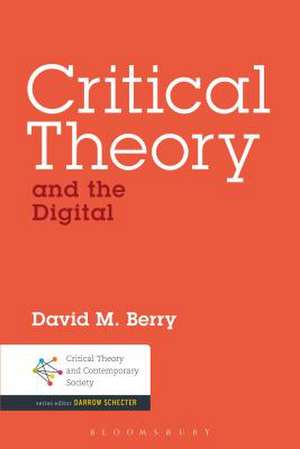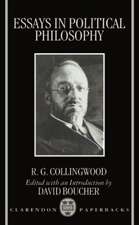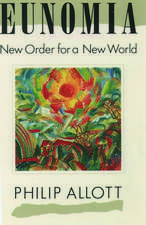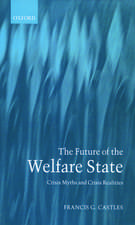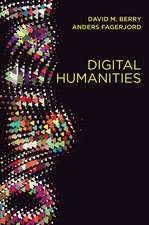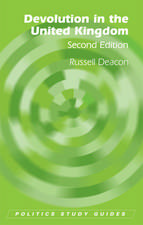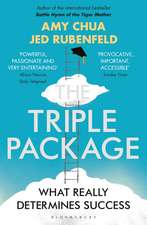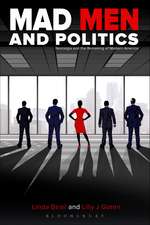Critical Theory and the Digital
Autor Dr. David M. Berryen Limba Engleză Paperback – 23 sep 2015
| Toate formatele și edițiile | Preț | Express |
|---|---|---|
| Paperback (1) | 257.59 lei 6-8 săpt. | |
| Bloomsbury Publishing – 23 sep 2015 | 257.59 lei 6-8 săpt. | |
| Hardback (1) | 832.65 lei 6-8 săpt. | |
| Bloomsbury Publishing – 12 mar 2014 | 832.65 lei 6-8 săpt. |
Preț: 257.59 lei
Preț vechi: 331.21 lei
-22% Nou
Puncte Express: 386
Preț estimativ în valută:
49.29€ • 51.59$ • 41.02£
49.29€ • 51.59$ • 41.02£
Carte tipărită la comandă
Livrare economică 31 martie-14 aprilie
Preluare comenzi: 021 569.72.76
Specificații
ISBN-13: 9781501310966
ISBN-10: 1501310968
Pagini: 272
Dimensiuni: 152 x 229 x 15 mm
Greutate: 0.37 kg
Editura: Bloomsbury Publishing
Colecția Bloomsbury Academic
Locul publicării:New York, United States
ISBN-10: 1501310968
Pagini: 272
Dimensiuni: 152 x 229 x 15 mm
Greutate: 0.37 kg
Editura: Bloomsbury Publishing
Colecția Bloomsbury Academic
Locul publicării:New York, United States
Caracteristici
Rearticulates critical theory by engaging it with the challenges of the digital revolution
Notă biografică
David M. Berry is Reader in the School of Media, Film and Music, University of Sussex, UK.
Cuprins
AcknowledgementsChapter 1: IntroductionChapter 2: From Culture Industry to Computational IndustriesChapter 3: The Softwarization of SocietyChapter 4: Computational OntologiesChapter 5: The Reification of Everyday LifeChapter 6: Computational AestheticsChapter 7: Critical Praxis and the ComputationalChapter 8: Towards a Critical Theory of the DigitalBibliographyEndnotesIndex
Recenzii
In demystifying the digital and bringing it into the realm of critical theory [this] book remains a timely and important work.
An informed and wide-ranging attempt to confront the computational epoch with the tools of Frankfurtian social analysis . . . There is insight in every chapter.
'Adorno will not be your Facebook friend.' Instead of lamenting the cultural elitism of the Frankfurt School, David Berry reopens critical theory's conceptual toolbox with a renewed curiosity. These days the theorist is no longer a prophet who ponders the world divorced from the materiality of communication. It is not enough to merely explore the technosphere, there is an urgency to radically question digital technologies. In this age of conflict, the neoliberal consensus culture is taken to task by critical theory David-Berry-style. In line with the info-activism of Wikileaks and Snowden, Berry instructs us how to read the black box that dominates our everyday lives and helps us to develop a new vocabulary amidst all the crazes, from speculative realism to digital humanities.
Berry's timely book engages with a broad range of topics that define our digital culture. It guides us to the political materiality of software culture with excellent insights. Importantly, this book updates critical theory for the digital age.
In this lucid, learned and highly original book Berry confronts the nature of digital knowledge in society through the re-invigorated lens of Critical Theory asking how we can regain control of the knowledge structures embedded in the digital technologies that we increasingly rely upon in daily life.
Critical Theory and the Digital offers an important new addition to critical theory that explores questions raised by the digital in light of the work of the Frankfurt school. Providing an accessible and critical appraisal of the digital world we live in today, the book argues that critical praxis must today be rethought in light of digital technologies and the affordances that are made available to state, corporate and civil society actors. The book offers both a theoretical and a political contribution: the former through its exploration of how the digital can be read, written, and hacked critically; the latter through its discussion of how the digital can be transformed by political action and the organisation of digital resistance.
Unlike many media studies scholars who refer to the Frankfurt School's critique of the cultural industries only to show its inapplicability to the open source world of the digital age, David Berry accomplishes the remarkable feat of re-instating that critique for the new brave world that is afforded by digital technology. Easily moving between Heidegger, Adorno and Stiegler, Berry mobilizes a formidable array of theoretical resources in aid of what he calls 'iteracy', an emerging competence in tracking the contexts in which 'being digital' is continually formed and re-formed. The result is a milestone in both critical theory and the digital humanities.
Bringing dialectical critique to digital culture, David Berry replenishes the legacy of the Frankfurt School in order to devise strategies to live within and against the real-time streams of computational capitalism. Fusing critical theory with the political economy of social media (think Facebook and Twitter), the surveillance paranoia of NSA, the wild party of Hacklabs, the secret autonomy of cryptography, and the accelerated economy of algorithmic trading, Berry registers the contours of the black box that defines digital labour and life.
An informed and wide-ranging attempt to confront the computational epoch with the tools of Frankfurtian social analysis . . . There is insight in every chapter.
'Adorno will not be your Facebook friend.' Instead of lamenting the cultural elitism of the Frankfurt School, David Berry reopens critical theory's conceptual toolbox with a renewed curiosity. These days the theorist is no longer a prophet who ponders the world divorced from the materiality of communication. It is not enough to merely explore the technosphere, there is an urgency to radically question digital technologies. In this age of conflict, the neoliberal consensus culture is taken to task by critical theory David-Berry-style. In line with the info-activism of Wikileaks and Snowden, Berry instructs us how to read the black box that dominates our everyday lives and helps us to develop a new vocabulary amidst all the crazes, from speculative realism to digital humanities.
Berry's timely book engages with a broad range of topics that define our digital culture. It guides us to the political materiality of software culture with excellent insights. Importantly, this book updates critical theory for the digital age.
In this lucid, learned and highly original book Berry confronts the nature of digital knowledge in society through the re-invigorated lens of Critical Theory asking how we can regain control of the knowledge structures embedded in the digital technologies that we increasingly rely upon in daily life.
Critical Theory and the Digital offers an important new addition to critical theory that explores questions raised by the digital in light of the work of the Frankfurt school. Providing an accessible and critical appraisal of the digital world we live in today, the book argues that critical praxis must today be rethought in light of digital technologies and the affordances that are made available to state, corporate and civil society actors. The book offers both a theoretical and a political contribution: the former through its exploration of how the digital can be read, written, and hacked critically; the latter through its discussion of how the digital can be transformed by political action and the organisation of digital resistance.
Unlike many media studies scholars who refer to the Frankfurt School's critique of the cultural industries only to show its inapplicability to the open source world of the digital age, David Berry accomplishes the remarkable feat of re-instating that critique for the new brave world that is afforded by digital technology. Easily moving between Heidegger, Adorno and Stiegler, Berry mobilizes a formidable array of theoretical resources in aid of what he calls 'iteracy', an emerging competence in tracking the contexts in which 'being digital' is continually formed and re-formed. The result is a milestone in both critical theory and the digital humanities.
Bringing dialectical critique to digital culture, David Berry replenishes the legacy of the Frankfurt School in order to devise strategies to live within and against the real-time streams of computational capitalism. Fusing critical theory with the political economy of social media (think Facebook and Twitter), the surveillance paranoia of NSA, the wild party of Hacklabs, the secret autonomy of cryptography, and the accelerated economy of algorithmic trading, Berry registers the contours of the black box that defines digital labour and life.
Descriere
This Critical Theory and Contemporary Society volume re-examines critical theory in light of the challenges raised by today's digital revolution.
